SAFE-T slander: Misinformation surrounds Illinois’ new criminal justice reform law
Pat Nabong | Chicago Sun-Times
Gov. J.B. Pritzker said he is in support of the SAFE-T act, a law that features sweeping criminal justice reform and ending the cash bail in Illinois on Jan. 1, 2023. Proponents of the law say this law will help end systemic racism in the criminal justice system in Illinois. There is a large of response to this act as a result of propaganda from political groups.
Governor J.B. Pritzker signed the highly publicized SAFE-T Act into law last year. In recent weeks, the act has been the subject of countless headlines and a major talking point amongst Illinois politicians, with some calling it a “Purge” law.
“I think it’s brazenly political propaganda,” said Carlos Ballesteros, a reporter at the non-profit journalism organization Injustice Watch. “[SAFE-T is] being pushed by not only elected officials on the right here in Chicago and Illinois, but also by fake newspapers.”
Ballesteros recently took part in the conversation himself, writing that the dialogue surrounding the new law is a “misinformation campaign.”
The act, which will take effect in Jan. 2023, reforms several criminal justice practices in Illinois, but the part that has spurred much conversation is the subset of the bill known as the Pretrial Fairness Act (PFA).
The PFA effectively abolishes cash bail in Illinois. Once in effect, a defendant may only be detained before a trial if they are charged with specific violent felonies like murder or sexual assault. While the law will increase the amount of those granted pretrial release, it still gives courts the ability to hold defendants of which they deem are safety or flight risks.
Getting rid of cash bail for non-violent offenses is seen as an important step towards equality for many whose life work is centered towards criminal justice reform.
“It’s definitely a huge step in a positive direction,” said Kareem Butler, a Pretrial Justice Fellow at Chicago Appleseed, an organization centered on achieving equity within the Illinois criminal justice system. “The fundamental values behind it are really racial equity and racial justice.”
Cook County Jail, one of the largest detention centers in the country, currently holds a disproportionate number of Black detainees. Almost three-quarters of Cook County Jail’s population is Black.
“We’re excited about the PFA because the reality is, the majority of people who are affected by the cash bail system in Illinois, are poor and Black or Brown and come from lower income communities,” Butler said.
While those working in criminal justice reform may be excited about what the act, which is the country’s first statewide legislation that abolishes cash bail, does for low-income detainees, others have taken the act and used it for political messaging.
“We must not allow this law to stand as passed,” said Keith Pekau, Orland Park Mayor and Republican candidate running for congress in Illinois’ 6th district, at a village board meeting on Sept 6. “Someone could decide to live in your shed, and all we could do is give them a ticket… This is a massive threat to residents of Orland Park, Cook County, and Illinois.”
It is claims like this that numerous fact-checking outlets are categorizing as patently untrue. Ballesteros’ own Injustice Watch, Snopes.com and Politico have all dispelled claims like Pekau’s, explaining that the language in the act still awards police discretion to arrest anyone they determine is a threat to public safety, no matter the charge.
It’s not just politicians using the act to incite fear.
Earlier this month, many Illinois residents received a fake newspaper, “Chicago City Wire” in their mailboxes. The racially charged mailer, which was published by right-wing radio personality Dan Proft, made claims that under the PFA, masses of detainees will be released into Chicago streets. This claim has also been debunked, and another example of what some see as fear-mongering that hurts the perception of Chicago.
“Narratives about violence in the city have a pretty good stronghold across the country,” Ballesteros said. “When you combine that with a law that purports to free criminals from jail and let loose these wild murderers or whatever, then it’s, kind of the match that lights the gasoline, if you will.”
Supporters of the new law see the financial burden of the state’s current bail system as unjust, as those from low-income communities are detained and remain in jail pretrial simply because they cannot afford bail.
In January, the U.S. Commission on Civil Rights released a report detailing that more than 60% of U.S. inmates are detained prior to trial because of an inability to afford bail. The commission also found that pretrial detention leads to several negative consequences like an increased likelihood to be convicted, future lack of access to housing, negative effects on employment status and a greater likelihood that a detainee will be charged with a crime in the future.
Demetrius Jordan, a DePaul marketing professor with criminal justice reform expertise, says there’s also a financial incentive to the state abolishing cash bail.
“It’s [going to] save the state an incredible amount of money,” Jordan said. “They’re [paying] to house these people in jail.”
According to Jordan, the new law that many conservatives are spreading misinformation about, is actually something that will save taxpayers money, a major ideology of conservative government.
“That conservative base that wants smaller government, this is actually a law that serves them and takes less money out of the taxpayer’s pocket,” Jordan said.
Now that the act is passed and will go into effect in January , supporters like Butler are now focusing on fighting back against the misinformation surrounding the law, and making sure that it is executed as it is written. He and his colleagues expect the false rhetoric to continue as Illinois gets closer to seeing the law put into action.
“You have folks around the state so dedicated to undermining the PFA,” Butler said. “If that’s any indication of what’s to come, I think we can assume that there will be people trying to really undermine its effectiveness after it’s been implemented.“
Connect with Patrick Sloan-Turner: @PatSloanTurner | [email protected]
Connect with Erik Uebelacker: @UebeMMA | [email protected]


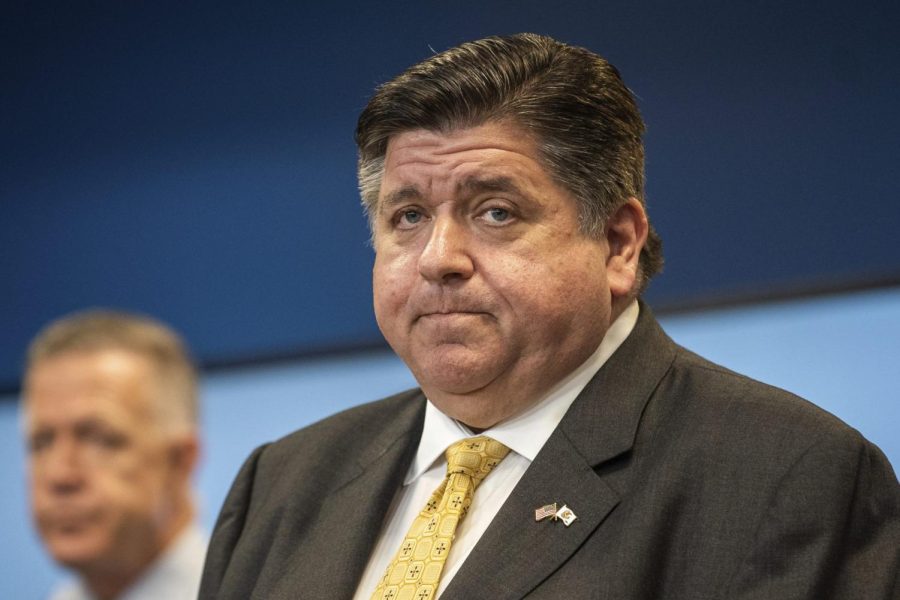
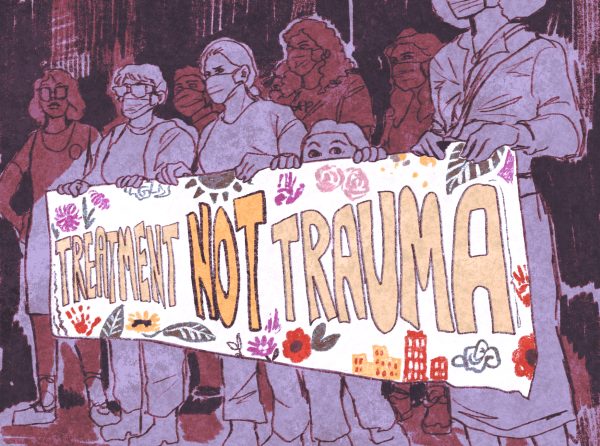
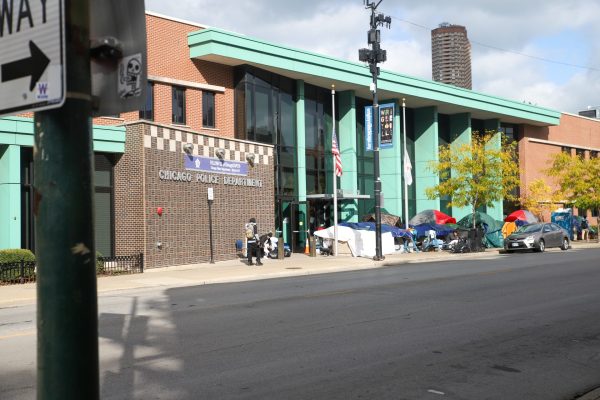


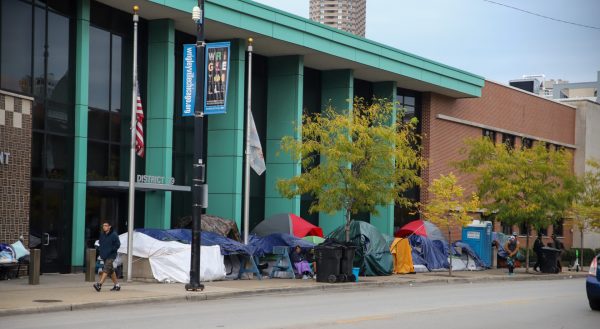





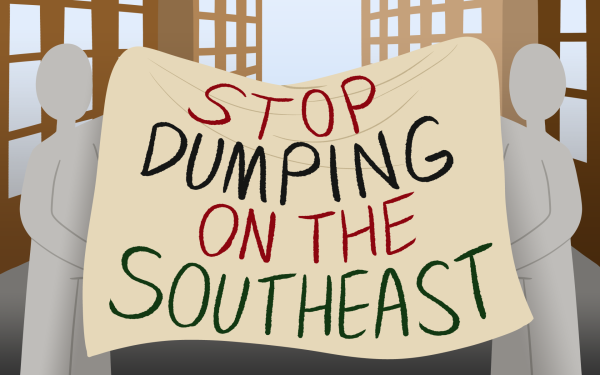


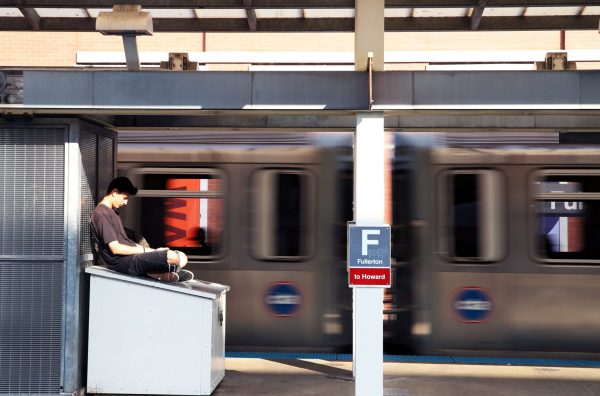
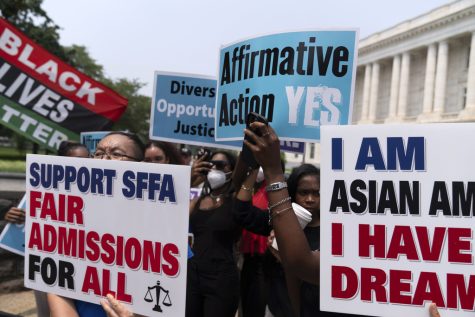
Dudley Sharp • Oct 4, 2022 at 6:25 am
This article sure reads like propaganda from a political group..
Dudley Sharp • Oct 4, 2022 at 6:17 am
This is how law enforcement works.
Cops will, only, arrest criminals for so long, after they find out that judges just let them out, immediately.
Once police leadership learns they are wasting their time and resources, they will tell their folks to stop arresting folks for that type of crime.
Criminals, of course, learn that as well, after which those crimes become acts with no attests, which will increase those criminal acts.
Basic, simple logic with a degradation of society.
What happened when the US increased their incarceration rate to 2.1 million?
In 2014, violent crime dropped to a 40-60 year low, depending upon crime category.
Crime is much more expensive that locking up criminals.
All of this was left out of the article.
Dudley Sharp • Oct 4, 2022 at 6:03 am
Maybe insane?
It depends upon your precise definition of “equity”, in criminal acts.
Crimes by race/ethnicity: 29 years of data.
For the White–Black comparisons, the Black level is 12.7 times greater than the White level for homicide, 15.6 times greater for robbery, 6.7 times greater for rape, and 4.5 times greater for aggravated assault.
For the Hispanic- White comparison, the Hispanic level is 4.0 times greater than the White level for homicide, 3.8 times greater for robbery, 2.8 times greater for rape, and 2.3 times greater for aggravated assault.
For the Hispanic–Black comparison, the Black level is 3.1 times greater than the Hispanic level for homicide, 4.1 times greater for robbery, 2.4 times greater for rape, and 1.9 times greater for aggravated assault.
REASSESSING TRENDS IN BLACK VIOLENT CRIME, 1980.2008: SORTING OUT THE “HISPANIC EFFECT” IN UNIFORM CRIME REPORTS ARRESTS, NATIONAL CRIME VICTIMIZATION SURVEY OFFENDER ESTIMATES, AND U.S. PRISONER COUNTS, See pages 208-209, FN 5, DARRELL STEFFENSMEIER, BEN FELDMEYER, CASEY T. HARRIS, JEFFERY T. ULMER, Criminology, Volume 49, Issue 1, Article first published online: 24 FEB 2011
Amy • Sep 30, 2022 at 10:26 am
As if this isn’t a biased article. I agree if you do the crime you should do the time. Why are we letting criminals get away with whatever they want?
LF • Sep 26, 2022 at 2:25 pm
I agree with the other comments. I already do NOT feel safe in this state, and this new law is going to make it that much easier for the criminals to keep on doing the crimes! We need to get these politicians out of office. They obviously don’t know what the are doing.
Debbie Masura • Sep 26, 2022 at 1:19 pm
If the majority of crimes are being committed by blacks or hispanics then that explains the reason our jails are filled with them!! It doesn’t take a scientist to watch the news or read the paper to know who the criminals are. Get tough on crime, and I mean really tough on crime, and you’ll see the numbers drop. And stop using the race card as a cop out for everything cause I for one am sick of it!
Jc • Sep 26, 2022 at 7:08 am
I don’t care about color, I care about crime. If you can’t afford bail, don’t do the crime and there is no worries for how much the bail happens to be ….
Rosemarie betz • Sep 26, 2022 at 10:22 am
If you do the crime ,
You do the time . I am tired of hearing most prisoners in jail are black . Do you now want a white person to do the time for a black person who committed the crime . Give me a break . Punishment deters crime .if you commit a crime you should receive appropriate punishment no matter what your race is period .